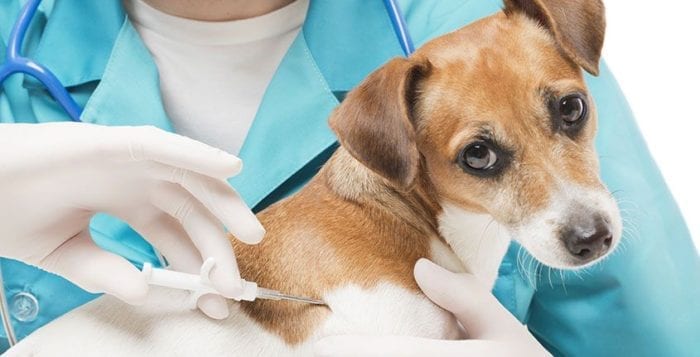By Matthew Kearns, DVM
 COVID-19 has brought into focus just how a pandemic can cripple society on so many levels and how important vaccines are in our lives today. Developing a safe and effective vaccine against COVID-19 has become the “holy grail” of human medicine.
COVID-19 has brought into focus just how a pandemic can cripple society on so many levels and how important vaccines are in our lives today. Developing a safe and effective vaccine against COVID-19 has become the “holy grail” of human medicine.
Vaccines are defined as a biological preparation of weakened or killed microorganisms, or portions of the DNA of these organisms (viruses, bacteria, or rickettsiae) to stimulate the immune system to prevent or ameliorate disease.
The word “vaccine” comes from the Latin, vacca, which means “cow”, because the first vaccine was actually derived from cowpox. Dr. Edward Jenner, an English physician that lived in the 1700’s, discovered that humans inoculated with the fluid from the blisters of cowpox helped prevent the development of smallpox. Since that time vaccines have been used to prevent disease, as well as the development of new vaccines to prevent or treat cancer.
How do vaccines work?
Puppies and kittens are born without an immune system. The protection they receive comes in the form of maternal antibodies (antibodies from the mother) in colostrum (the first milk from the mother). These antibodies are absorbed through the gastrointestinal tract into the newborn puppy or kitten and these maternal antibodies protect them for the first four weeks of life.
After the first four weeks of life the protection from maternal antibodies declines and they will have to develop their own immune system to fight infection. Unfortunately, there is a window (between the ages of four to eight weeks) from when a puppy or kitten gradually loses protection from maternal antibodies, BUT before their own immune system begins to develop and is able to start to fight infection. That is why veterinarians recommend keeping puppies and kittens away from other dogs and cats before they start the vaccinations. Many infections can be very serious (eg., parvo, distemper, rabies, feline leukemia, etc.) and possibly fatal if the kitten or puppy is exposed before they have adequate immunity to it.
The goal of vaccines is to administer them before our pets are exposed to the infection naturally but after the pet has the ability to use the vaccine. This means at an age where the puppy or kitten have lost a majority of the protection from their maternal antibodies yet old enough for their immune system to use the vaccine to fight infection (ideally between the ages of eight to nine weeks).
Administering vaccines before eight to nine weeks is controversial because maternal antibodies can interfere or inactivate the vaccine and the puppy or kitten will receive little (if any) protection. Don’t worry. There are established vaccination protocols for a pet of any age.
Remember during these difficult times to not forget about the health of our four-legged family members. Call your veterinarian’s office to make sure your dog or cat is up to date on their vaccines.
Dr. Kearns practices veterinary medicine from his Port Jefferson office and is pictured with his son Matthew and his dog Jasmine. Have a question for the vet? Email it to [email protected] and see his answer in an upcoming column







